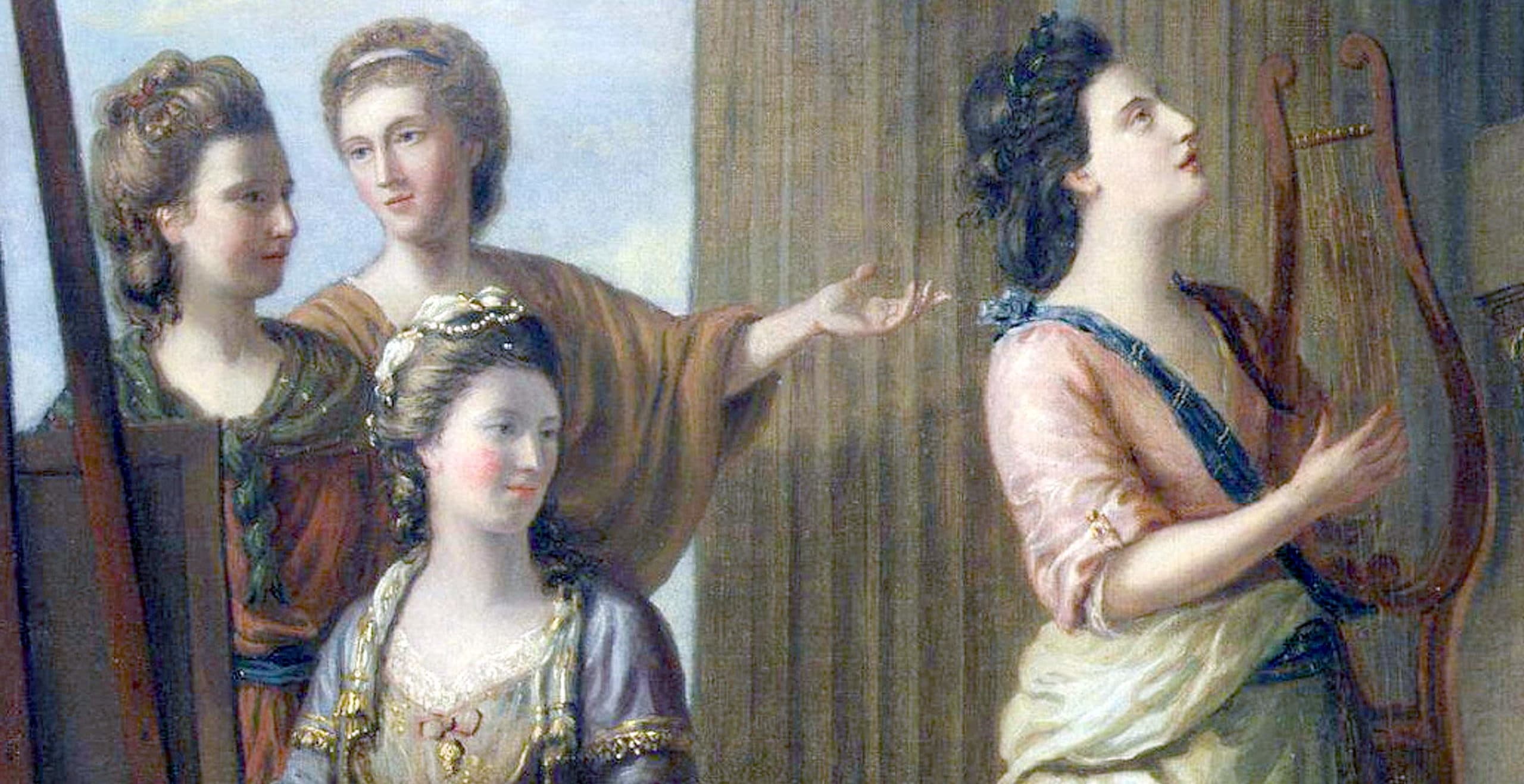Real People. Real Conflict. Real Romance.
Historical Romance
in the style of Jane Austen

Bluestocking
The changing meaning of the term "bluestocking" in the Georgian era
What do you think of bluestocking heroines in hist roms? Yea or nay?
Before we dive into the meaning of "bluestocking," do know this Fast Fact is only about the use of the term, not about the society. I've included links to get to know the Blue Stockings Society, specifically.
“Bluestocking” is almost exclusively a Georgian era term, but the meaning changed throughout the era.
The origin is rather innocent, referring specifically to members of the Blue Stockings Society, a lady's founded literary group formed in the 1750s. The group was, at face value, a literary discussion society, but the members were known to discuss more than just literature, such as philosophy, politics, and social matters. Since it was an informal society valuing mind over matter, members were encouraged to attend even if they did not have proper or stylish stockings, hence the tongue-in-cheek name of the group (check out Benjamin Stillingfleet as the inspiration).
At first, both men and women attended, so early references to “bluestocking” could apply to either gender, but by the 1770s, the term referred only to women.
The society’s popularity did not last to the end of the 18th century, so as we reach the end of the 18th, references did not necessarily apply to members, rather negatively to any woman who resembled aspects of the members, namely frumpily dressed women rather than women with intellectual prowess.
By the Regency era, “bluestocking” had lost most of its frumpy reference and was used as a general term for any woman who enjoyed reading or intellectual pursuits over fashion or accomplishments—a term used derogatively, not complimentary. A well-bred lady, in the eyes of the Georgian era, was one accomplished in skills such as embroidery and pianoforte playing, not Latin or mathematics.
To be called a “bluestocking” in the 18th century more than likely meant the young lady was part of the literary group or had early feminist leanings. To be called a “bluestocking” during the early 19th century more than likely meant she was in some way undesirable, be it unfashionable, opinionated, argumentative, unskilled in a lady’s accomplishments, or simply intellectual.
When using the term in writing or catching the meaning in literary uses, it's important to recognize the year of use, especially since it applied to both genders in the mid-18th century but only to women by the end of the 18th century. For a man to be considered a bluestocking during, say, the Regency, would have been an insult to his sex rather than to his intellectual pursuits or fashion sense.
Regardless of when it was used, the term was considered an insult, although this could be a playful insult if used between friends.
To learn more about the society itself, check out these two fantastic articles:


